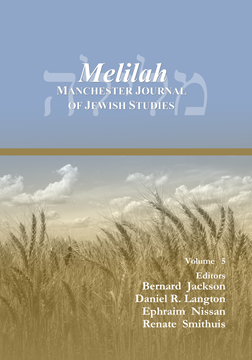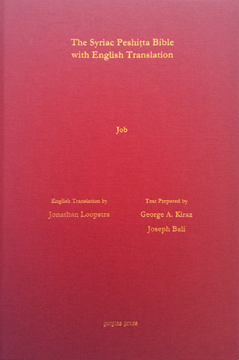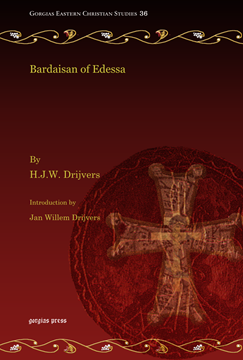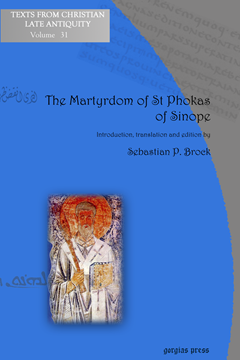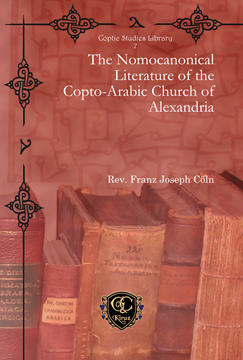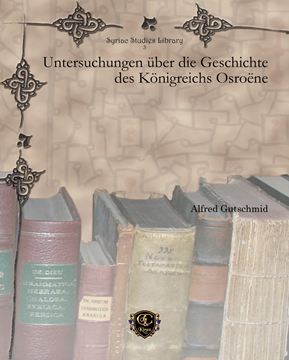Manchester Journal of Jewish Studies (2008)
ISBN: 978-1-4632-0184-5
Melilah is an interdisciplinary peer-reviewed journal concerned with Jewish law, history, literature, religion, culture and thought in the ancient, medieval and modern eras. Contributors (2008) include Tobias Green, David Lincicum, Daniel R. Langton, Dan Garner, and Giula F. Miller.
$51.00 (USD) $30.60 (USD)
Job According to the Syriac Peshitta Version with English Translation
Series: Surath Kthob 16
ISBN: 978-1-4632-0554-6
This volume is part of a series of English translations of the Syriac Peshitta along with the Syriac text carried out by an international team of scholars. Loopstra has translated the text, while Kiraz has prepared the Syriac text in the west Syriac script, fully vocalized and pointed. The translation and the Syriac text are presented on facing pages so that both can be studied together. All readers are catered for: those wanting to read the text in English, those wanting to improve their grasp of Syriac by reading the original language along with a translation, and those wanting to focus on a fully vocalized Syriac text.
$150.00 (USD) $90.00 (USD)
Bardaisan of Edessa
Introduction by Jan Willem Drijvers; By H.J.W. Drijvers
Series: Gorgias Eastern Christian Studies 36
ISBN: 978-1-4632-0188-3
In this volume, a reprint of his 1966 monograph, H. J. W. Drijvers investigates the life and teachings of Bardaisan of Edessa, determining his place in the religious and cultural life of Edessa in the second half of the second century of the common era.
$163.00 (USD) $97.80 (USD)
The Martyrdom of St Phokas of Sinope
The Syriac Version
Introduction, translation and edition by Sebastian P. Brock
Series: Texts from Christian Late Antiquity 31
ISBN: 978-1-4632-0189-0
The fame of the martyr St. Phokas, first bishop of Sinope (on the Black Sea) and patron of seafarers, had spread to many parts of the Christian world by the fifth and sixth centuries. Although the Acts of his martyrdom under Trajan were composed in Greek, the earliest witness to them is the Syriac translation which is edited and translated here from two early manuscripts.
$34.00 (USD) $20.40 (USD)
The Nomocanonical Literature of the Copto-Arabic Church of Alexandria
Series: Coptic Studies Library 7
ISBN: 978-1-61719-188-6
Nomocanons (manuals of law) in Eastern Christianity give insights into the whole civil and religious life of communities, families and individuals. Nomocanonical literature is particularly abundant in the Coptic tradition, and the Rev. Franz Joseph Cöln describes five Nomocanons of the Coptic Church with a short account of their contents.
$136.00 (USD) $81.60 (USD)
Untersuchungen über die Geschichte des Königreichs Osroëne
Series: Syriac Studies Library 3
ISBN: 978-1-61719-417-7
This volume is a good quality reprint of the 1887 edition of Alfred von Gutschmid's classic text. It will be of interest to scholars in the Syriac-speaking kingdom of Osroene (or Edessa).
$141.00 (USD) $84.60 (USD)
